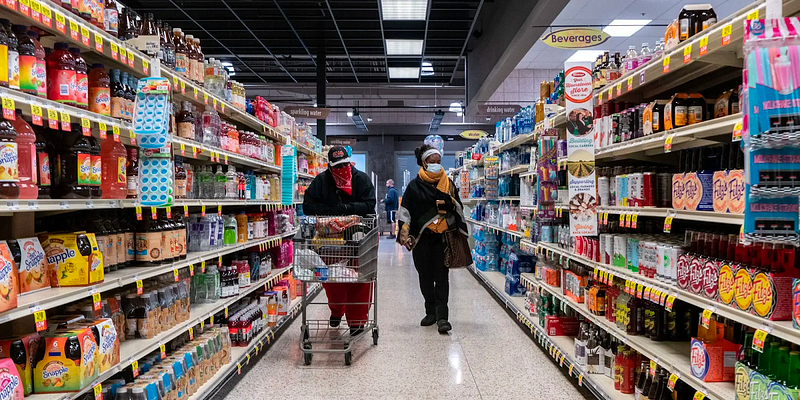By: MPAC Policy Bureau

We are in the midst of the most severe inflation crisis in recent history. According to the U.S. Labor Department’s latest monthly report on the Consumer Price Index (CPI) for March 2022, inflation in America has roughly risen by 8.5% since last Ramadan and is the highest since 1981.
This is more than a number on a graph on a TV screen. This means making dinner or preparing iftar this month costs significantly more than it did last Ramadan.
While some of us might be blessed with being able to withstand this increase, there are far too many Americans who may have been living paycheck to paycheck, whose ability to put a meal like iftar on the table has greatly diminished. As we attend events at our local mosque after two years of social distancing, and are finally able to pray Jummah as one community, let’s think about the reality that the person next to us may not actually be financially stable enough to provide for their family.
Food and energy prices have been the most jarring expenses, with gas prices up by 48% over the past year. Other goods and services have also undergone a hike in their price tag, including airline tickets, whose prices have gone by 24%. The burden of these rates, however, vary from household to household.
While every American no doubt feels the effects of rising prices, low-income individuals and households are unfortunately bearing the brunt of the inflation. Wage increases have not kept up with the rate of increasing costs, forcing many Americans to choose between spending on basics like food, utilities, and housing because their incomes can simply no longer cover all such costs.
For lower income families and individuals, the uptick in prices can be especially hard as they take up a much larger percentage of monthly income as opposed to wealthier families. The World Economic Forum (WEF) reports that “a family in the lowest 20% of income typically spends around 15% of their budget on groceries — this is nearly 60% more than households in the top 20% of the income distribution.” This indicates that in this current climate, many Americans inherently lack human security.
Human security is a way of thinking about security that focuses on the sanctity of human life and the dignity of every human being– it means that every human being has the right to live free from fear and want. That includes the fear of losing housing and the want for food and basic amenities. Human security, in fact, is a key component of Islam, which places great value on human dignity and human wellbeing.
As we break fast this Ramadan and come together to feast and enjoy our meals with our family and community, it behooves us to bear in mind that food is one of the main categories from our proverbial basket of goods impacted by rising costs.
This month is the month of giving, so we ask that as you consider who to give to and where, bear in mind the blessing of having the ability to give. Consider that those in need are needing more than ever before and the number of people in need within our community has only grown since the last time we celebrated this holy month.
As we come up to the halfway point in Ramadan, let us consider our fellow American Muslims who may be struggling to make ends meet in this time of giving. Prophet Muhammad emphasized that we as Muslims ensure that our neighbor does not go to sleep hungry. And in that spirit, let’s do what we can to achieve just that.
Invest in MPAC’s work to improve public policies and perceptions. We’re changing how America views Islam and Muslims.